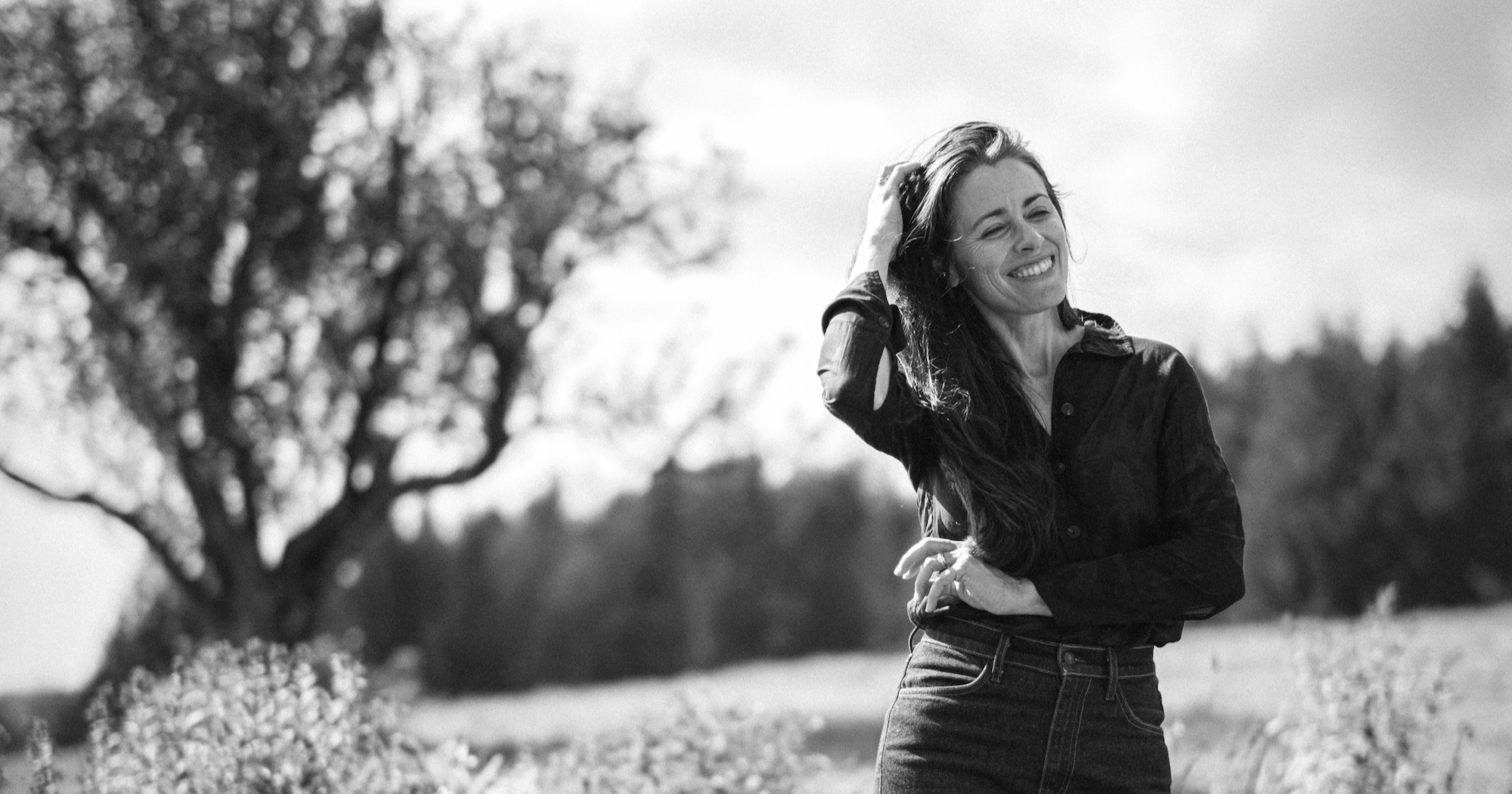New days and clean slates keep coming for singer-songwriter Caitlin Canty. She is sharpening her skills, raising a family, and continuing to build a body of work that reflects resilience, quiet strength, and resolute honesty. Her new record, Night Owl Envies the Mourning Dove, is a testament to her evolving artistry – an album that turns natural solitude, domestic change, and hard-earned wisdom into a collection of songs that sound both grounded in the earth and untethered from time.
Canty was born in Proctor, Vermont, in 1982 and grew up surrounded by rural landscapes and the gentle rhythms of small-town life. Raised by a schoolteacher mother and a housepainter father, she found song in ordinary moments – singing in chorus and playing trombone in school before receiving her first guitar and VHS-tape lessons at age 17. After earning a biology degree from Williams College she moved to New York City, where she worked for the Emmy-nominated series Live from the Artists Den while pursuing music on her own terms.
Her early releases – including Golden Hour (2012) and the breakout Reckless Skyline (2015) – drew acclaim for her “casually devastating voice” and “hauntingly urgent” Americana ballads. She won the Telluride Troubadour songwriting competition in 2015 and began touring extensively across the U.S. and Europe, collaborating with artists like Peter Bradley Adams and Jamey Johnson, and earning praise from Rolling Stone, NPR, and No Depression for her gritty lyricism and radiant poise.
In recent years, she and her husband, musician Noam Pikelny, moved back to Vermont, settling on a mountaintop near her childhood home. There, Canty continues to record, tour, and write – with the same battered 1939 Recording King guitar that has accompanied her throughout her career.
One of the album’s most tender tracks, “Don’t Worry About Nothing,” carries the voice of a mother consoling and encouraging against the endless churn of small anxieties. It is at once lullaby, sermon, and reminder: that one bad thing does not mean the whole world has collapsed.
“There is a mom’s voice and perspective to focus and worry about the things that do matter,” Canty explained. “But also how little worries and little jealousies can work against us… Tornadoes, awful things, [they] remind you how short life is and what’s actually important.”
The song’s origins stretch back to a small mishap – her young son’s toy castle tumbling down – but its weight comes from deeper, darker places. In March 2020, a tornado tore through her East Nashville neighborhood, missing her home by mere yards. Not long after, the pandemic upended the world. The castle was a metaphor, she realized, for the way everything can crash at once, yet perspective offers a way forward.
For Canty, who released Reckless Skyline a decade ago, the test of time has reshaped her relationship to both music and ambition. “My real goal is to be writing more and better songs,” she said. “My real goal is to be connecting with more people through those songs, playing with musicians that I adore, and getting on good stages. Not worrying about courting people, but to do right by the music.”
Doing right by the music has meant widening her scope. Night Owl Envies the Mourning Dove reaches for longevity, not trends. It sits comfortably in a lineage of songwriters who, like Canty, trust the songs to outlive themselves. “I look to musicians who have had longer careers, like Dolly Parton,” she said. “She is singing songs that she wrote in her 20s. There are so many who have a gorgeous output of songs that are their lifelong friends. It’s not about when they were written or how people liked them then.”
Canty doesn’t wait around for the muse. To her, waiting for inspiration is “a fool’s errand.” She compares songs to photographs – fleeting impressions that must be captured before they fade. “You take a picture and you remember it as notable and beautiful and there is something about it that makes you want to share it. That type of inspiration sparks a song. It happens countless times a day.”
But the challenge, she says, is to honor the purity of that first flash. “You are lucky if you have the time from start to finish to complete the song and make the world go away. The fewer co-writers the better, including myself. If you open it up again in two weeks, or a year, you have different eyes… and that brings too many people and opinions into the room rather than one solid voice.”
Some of her most recent songs arrived in just such a spark – like during a violent rainstorm in Vermont. Alone in her cabin as thunder cracked over the mountains, Canty felt a song arrive like lightning. Hungry, shivering, and unable to leave, she turned to the page. “That’s when it is about honoring your craft and keeping your calluses hard,” she said. “Writing songs and tending to those fires.”
Much of the new album reflects Canty’s sense of place. After years of calling Nashville home, in Vermont the woods, weather, and solitude shape her work. Songs like “Electric Guitar” hum with what she calls “domestic noise” – the sound of home life creeping into the music. “Examining what home means is another strong thread in a lot of these songs,” she said. “There is a lot of domestic noise in ‘Electric Guitar’ of a life settled and tied to the home front.”
The landscape also plays a role. Birds, trees, and storms become metaphors for transformation and survival, grounding her reflections on motherhood and the passage of time.
Every songwriter brings along artists who came before them and for Canty, one such artist is Lucinda William and her landmark album, Car Wheels on a Gravel Road. Canty first heard it in college while working as a server to make ends meet. Living in a big house with wide kitchen windows, she found herself singing along to those raw, unvarnished songs. “The sound, the songwriting, the singing – it all was a high-water mark for me,” Canty recalled. “It had the mystery of how something so simple could be so powerful. Why is this message of another person hitting my heart and staying embedded? How do I do that?”
Since Reckless Skyline, Canty has been described as gentle, quiet, restrained. But she resists those labels. “I don’t think that that is what this record is,” she said. “There might be fingerpicked and more solitary numbers, but a lot of the songs are more electric and grittier, and closer maybe to Reckless Skyline or Car Wheels in that regard.”
There’s grit beneath the quiet, steel beneath the lull. That mix – of softness and resolve – has become her artistic fingerprint. At the core of her music lies a devotion to truth.
“I could never act,” Canty admitted. “As a kid, I loved band and singing. Music is getting to truth and getting yourself out of the way of a song. If it’s the truth, then I feel comfortable singing it.”
That truth may be wrapped in storms or in stillness, in the clatter of home or in the electric hum of a live stage. But it is always there – steady, unpretentious, and deeply human.
With Night Owl Envies the Mourning Dove, Caitlin Canty has crafted more than an album – it is a meditation on resilience, a love letter to songwriting itself, and a statement of intent. She is not chasing spotlights or trends, but tending her fires, shaping her craft, and writing songs that might someday be her lifelong friends.
“My real goal,” she repeats, “is to be writing more and better songs… to do right by the music.”
For Canty, that’s enough. And for those who listen, it is everything.
Photo Credit: Noah Altshuler


